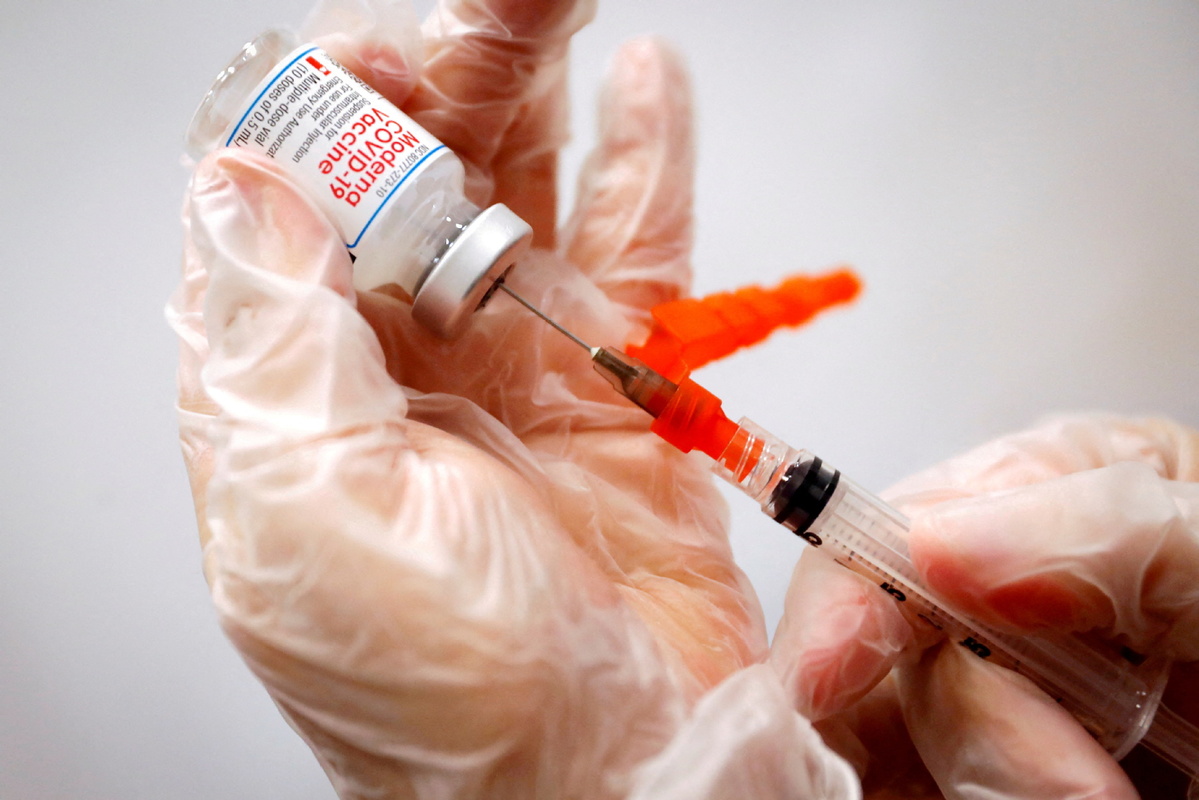Experts divided over another COVID booster


Both Pfizer-BioNTech and Moderna are seeking emergency use authorization for a second booster dose of their COVID-19 vaccines, but scientists and physicians are divided over whether it is necessary.
The Food and Drug Administration (FDA) announced Monday that an advisory panel will meet April 6 to discuss COVID-19 vaccine booster doses.
The agency said the discussion will focus on factors such as whether the vaccines need to be updated to address new coronavirus variants, as well as the timing and populations for booster doses.
Pfizer and BioNTech asked the FDA on March 15 to authorize a second booster shot for people ages 65 and older, while Moderna asked the agency on March 17 to authorize a second booster for all adults.
The moves come amid signs that the US could experience another COVID surge as the Omicron subvariant known as B.2 accounts for around a quarter of all new sequenced cases in the US, and the proportion appears to be increasing, according to the Centers for Disease Control and Prevention (CDC).
The variant also is spreading throughout Europe and other parts of the world.
The FDA panel, along with the CDC, is widely expected to approve Pfizer's request — a fourth shot for people ages 65 and older — because they are the group most likely to be hospitalized or die of COVID-19, according to The Hill.
A CDC study released last month found that the effectiveness of Pfizer's and Moderna's vaccines against hospitalization decreased from 91 percent two months after the initial booster shot to 78 percent after four months.
Another study, according to Pfizer in a news release, found rates of severe illness were four times lower among individuals who received a second booster, compared with those who received only one booster shot.
"We know that the duration of the protection doesn't last very long," Pfizer CEO Albert Bourla said in an interview Sunday with CBS' Face the Nation. "It is necessary, a fourth booster right now."
Henry Miller, a former FDA official, said he was "bullish" on the idea of another booster dose. "I don't anticipate anything surprising. I mean we've been through this now with three doses. That (Pfizer's vaccine) is an extremely safe and very effective vaccine."
But Cornell University virologist John Moore said, "Pfizer seems to be saying that, because their vaccine isn't very good, people need more of it. If the FDA approves another dose, it would make sense to use a stronger vaccine instead, like Moderna or eventually Novavax."
But many health experts have questioned how well COVID vaccines have prevented serious disease in younger healthy people, and whether and how often they should be boosted.
"To be sure, the evidence that drugmakers have shared isn't all that compelling to some scientists,'' said Jesse Goodman of Georgetown University, a former FDA vaccine chief, NBC News reported.
"I'm not yet convinced that the time is right now to go with a fourth dose. But if that waning protection against severe infection is clearly documented, and then if we see that a fourth dose can overcome that for more than just days to weeks, that would be something to consider," Goodman said during a press briefing.
Countries such as Israel, Denark and Chile have been administering fourth doses to vulnerable groups.
A study published March 16 in The New England Journal of Medicine found that a fourth dose didn't differ significantly in levels of protective antibodies against the Omicron variant compared with the third dose. The study from Israel surveyed more than 800 healthy young healthcare workers.
A small pre-print study published last month from Israel also found that a fourth dose provided only a small increase in protection from the first three doses, possibly only restoring the level of immunity that was lost from waning over time.

































